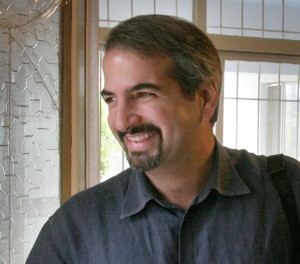May Reading

May was my lucky month. I was able to meet with all three of my book groups. The non-fiction group at Central Library discussed House of Stone: a Memoir of Home, Family and a Lost Middle East by Anthony Shadid, a book I found very engaging. The author, then a Pulitzer-prize-winning reporter for the Washington Post, took a leave of absence to restore the house in Marjayoun, Lebanon where his grandmother had lived before she immigrated to Oklahoma City in the 1920s. He needed a break after a painful divorce and years covering the war in Iraq for the Post. Lilli and I traveled in Lebanon in April 2001 and visited the Nucho family in Hammana, not far from Marjayoun. The setting brought back many fond memories of that trip. Plus, some Googling confirmed that two doctors in Borger, my home town in the Texas Panhandle, were from the tribe of Lebanese that settled in Oklahoma: Dr. Henry Hamra, who delivered me and cared for me until I was 18, and Dr. George Shadid, a dentist. Anthony Shadid, the author, identifies himself as a grandson of George Shadid. He served as pall bearer at the funeral of his grandmother, Onnie Dee Shadid Hanes, in 2009. Tragically, Anthony Shadid died of an asthma attack while on assignment for the New York Times in Syria in February 2012. He was only 43. Shadid narrated 10 short videos on YouTube that chronicle his rebuilding of the family home, which had been hit by Israeli mortars. Here’s the final chapter:
My Wednesday morning group discussed The Immortal Life of Henrietta Lacks by Rebecca Skloot. I had read it previously, but as usual absorbed more the second time through. Our group especially appreciated the author’s patience and empathy with Lacks’ family members, who didn’t know their mother’s fame among medical researchers until twenty years after her cancerous cells were harvested, grown in labs and distributed throughout the world with the identifying code “HeLa” attached. These remarkably hardy cells led to many medical advances, such as polio vaccine. No one explained the research to her family, however, and they were subjected to nosy reporters and charlatans. Skloot gained their confidence over a ten-year period. When her book became a runaway bestseller, she established a foundation to assist Lacks’ descendants in attaining better education. The debate over medical ethics and the exact nature of “informed consent” rages on, as you can see in this op-ed piece by Rebecca Skloot. On a practical level this book inspired me to make sure I have an up-to-date medical power of attorney.
The Sense of an Ending by Julian Barnes was the choice of my Wednesday evening group. A well-crafted novel by the author of Flaubert’s Parrot, it deals with suicide, consequences, memory and remorse. A vicious letter written by the protagonist in his early twenties comes back to haunt him in his sixties. Can he find atonement? I hope I didn’t leave such a mess anywhere in my past.
Shelby lent me Guns by Stephen King, a short essay intended to provoke rational discussion of gun violence in America. It’s fair and hard-hitting. I recommend it to everyone. The Kindle version is only $0.99.
In the Garden of the Beasts: Love, Terror and an American Family in Hitler’s Berlin by Erik Larson was the book I chose for my trip home from Texas. Martha Dodd, daughter of the U.S. Ambassador to Germany from 1933-37, is one of the chief characters–even more outrageous and fun-loving than this Martha. The Dodds were predisposed to like the Germans and initially excused some of the behavior they observed. Gradually they became aware of the horrors that the Nazis were perpetrating. If only people in the U.S. Government had listened more closely to the reports from the field. Steve and I visited the Tiergarten (which I assumed just meant “zoo” or “animal park,” rather than “garden of the beasts”) in Berlin in 2005. In the 1930s it was the large park near which many countries had their embassies. I had previously read Larson’s The Devil in the White City, about a murderer who was attracted to Chicago by its Columbian Exposition in 1893.
Leave a Reply